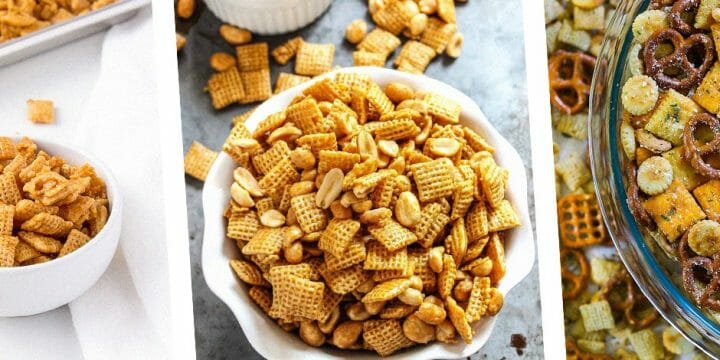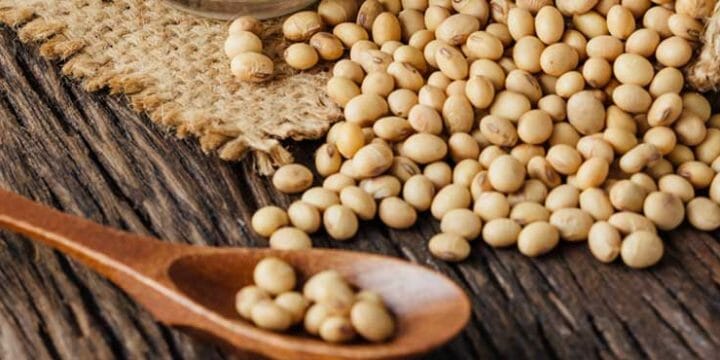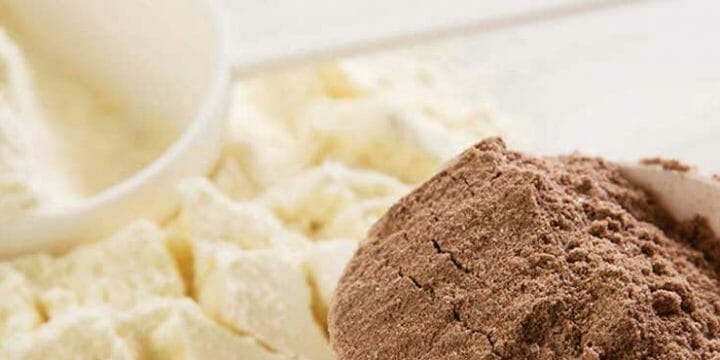People trying to gain lean body mass often excessively consume animal-sourced proteins as they are known for having a complete amino acid profile.
However, my years as a coach taught me that consuming too much protein from supplements and animal products can compromise one's health.
So, I have spent hours researching and analyzing the data to figure out if a complete protein meal plan can also come from plant-based sources.
This article will explain what a complete protein is, the best sources of complete proteins, and how to reach complete protein requirements for optimal muscle growth.
Let's begin.
Quick Summary
- Complete proteins contain all nine essential amino acids, crucial for building muscle, repairing tissue, and supporting metabolism.
- Both animal and plant-based foods offer complete proteins, with animal products typically being richer in essential amino acids.
- Statistically, the average adult needs about 0.8 grams of protein per kilogram of body weight daily, with higher needs for those building muscle, according to the American Society of Nutrition.
- Personally, I believe a balanced diet that includes a mix of animal and plant proteins is key to achieving optimal health and fitness.
What Is the Difference Between Complete Proteins And Incomplete Proteins?
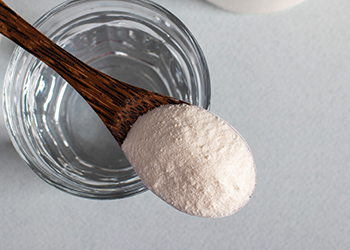
The main difference between complete and incomplete proteins is their respective essential amino acid content.
As a coach, I've seen how complete proteins, rich in all essential amino acids, significantly impact muscle development compared to incomplete ones.
Essential amino acids are nine of the twenty building blocks of protein that our body needs to build muscles, repair tissues, and support metabolism, according to the National Library of Medicine [1].
These essential amino acids include:
- Histidine
- Isoleucine
- Leucine
- Lysine
- Methionine
- Phenylalanine
- Threonine
- Tryptophan
- Valine
In summary, foods that include all the essential amino acids our bodies require are called "complete proteins." In contrast, those lacking in one or more of these essential amino acids are considered incomplete protein sources.
Are There Benefits To Getting The Nine Essential Amino Acids From Diet?
There are numerous benefits to getting the essential amino acids from the diet because that completes the twenty building blocks of protein our bodies need to sustain optimal health.
In my training experience, diets rich in essential amino acids drastically improve physical performance and recovery.
Different amino acids have unique roles, such as histidine supporting the immune system and tryptophan regulating mood and sleep, highlighting the diverse functions of proteins in our body.
Twenty amino acids are required by our bodies to support normal biological processes and functions, such as:
- Proper food digestion
- Nutrient absorption
- Muscular tissue regeneration
- Effective energy generation
- Lean muscle mass retention
- Concentration and mood enhancement
- Improvement in physical performance
However, because our bodies can only produce eleven of the amino acids we require, we must obtain the remaining nine from food, according to the MedicalNewsToday [2].
When we eat foods high in protein, they are metabolized by our digestive system into amino acids. However, not all foods contain these organic compounds in sufficient quantities to meet the body's protein requirements [3] [4].
That is why it is vital to develop a varied, high-protein meal plan to ensure enough intake of the essential amino acids required for normal protein synthesis and muscle health maintenance.
What Are The Best Complete Protein Sources?

The best sources of complete proteins are a variety of animal and plant-based foods.
In my coaching career, I've found that both animal and plant sources, like eggs and soy, are key to a balanced diet.
Animal-Based Foods
According to research published in Journal of Sports Science & Medicine, animal-based foods are the best sources of complete proteins for non-vegans, as all essential amino acids are typically found in animal products [5].
Here are a few examples of complete animal proteins:
- Meat
- Poultry
- Fish
- Eggs as a pre-workout
- Dairy (milk and cheese)
However, while animal protein is one of the best sources, you don't have to eat it to get the full health benefits of complete protein intake.
"For someone who wants the most muscle and to maximally build structures in their body, I would try to combine proteins in each meal."
- Marie Spano, RD, CSCS, Lead Author of Nutrition for Sport, Exercise & Health
In people with a high risk of chronic diseases, the source of protein is more important than the amount of protein. So, experts recommend eating foods from a variety of organic animal and plant-based sources throughout the day [6].
Plant-Based Foods
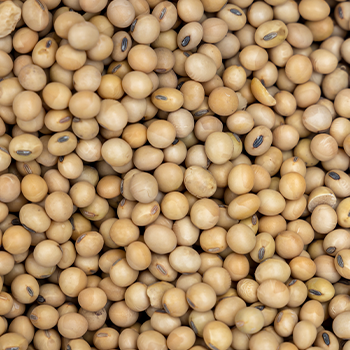
Most plant-based foods that are high in protein, including corn, lentils, peanuts, broccoli, and mushrooms, are deficient in one or more essential amino acids, according to the MedicalNewsToday [7].
However, there are a few plant-based complete proteins that contain the essential amino acids required by the body for the formation and repair of muscle tissues, including:
- Soy
- Hemp seeds and Chia seeds
- Nuts (Roasted American Pistachios)
- Cereals and whole grains (quinoa, amaranth, buckwheat)
- Leafy greens (Spinach)
It's critical to remember that you don't have to eat animal protein at every meal to maintain an amino acid-rich diet, as some meat products may contain excessive amounts of saturated fat, sugar, and sodium [8].
Nutritionists recommend that you obtain most of your protein from various vitamin and mineral-dense plant foods.
How Much Protein Do I Need?

You need about 0.8 grams of protein per kilogram of body weight daily, according to the American Society of Nutrition (ASN) [9]. Guiding athletes, I recommend that amount of protein per kilogram of body weight, adjusted for activity level.
However, adults wanting to build muscle should increase their protein consumption to 1.8 to 2 grams per kilogram of body weight (0.8 to 0.9 grams per pound of body weight), as this is the recommended amount for tissue growth [10].
Our bodies can only absorb 25 to 40 grams of protein per meal, emphasizing the need to distribute protein consumption throughout the day for optimal absorption.
Some people regularly consume large amounts of meat and animal products to receive essential amino acids and meet their protein requirements.
However, those who abstain from meat and animal products get the complete proteins they need by combining various plant-based incomplete protein sources in the same meal.
The best part about a varied plant-based diet is that it can improve overall health and longevity because protein-dense plants are also high in fiber, vitamins, minerals, and antioxidants.
Related: Does Protein Help You Lose Weight?
Is It Necessary To Eat Complete Protein Foods To Get Enough Protein?
It is not necessary to eat complete proteins from animal sources to get enough of this macronutrient if a wide variety of plant foods are consumed throughout the day. From my experience, a mix of plant foods throughout the day can adequately meet protein needs.
Research suggests that eating sufficient calories from a nutritious, varied plant protein diet should provide an adequate supply of the essential amino acids your body needs [11].
To summarize, both animal and plant-based sources can provide a full amino acid profile, but eating complete proteins alone will not result in the development of lean body mass.
Consuming this essential nutrient in conjunction with natural dietary supplements and regular exercise will allow you to get the most out of it.
If some of these plant foods are not available in your country, you can always fill in the gaps with some protein powders:
References
- https://www.ncbi.nlm.nih.gov/books/NBK557845/
- https://www.medicalnewstoday.com/articles/324229
- https://www.healthline.com/health/protein-digestion
- https://www.ncbi.nlm.nih.gov/pmc/articles/PMC5872778/
- https://www.ncbi.nlm.nih.gov/pmc/articles/PMC3905294/
- https://www.hsph.harvard.edu/nutritionsource/what-should-you-eat/
- https://www.medicalnewstoday.com/articles/322827
- https://www.heart.org/en/healthy-living/healthy-eating/eat-smart/fats/saturated-fats
- https://pubmed.ncbi.nlm.nih.gov/28298271/
- https://pubmed.ncbi.nlm.nih.gov/22150425/
- https://www.medicalnewstoday.com/articles/196279
About The Author
You May Also Like

